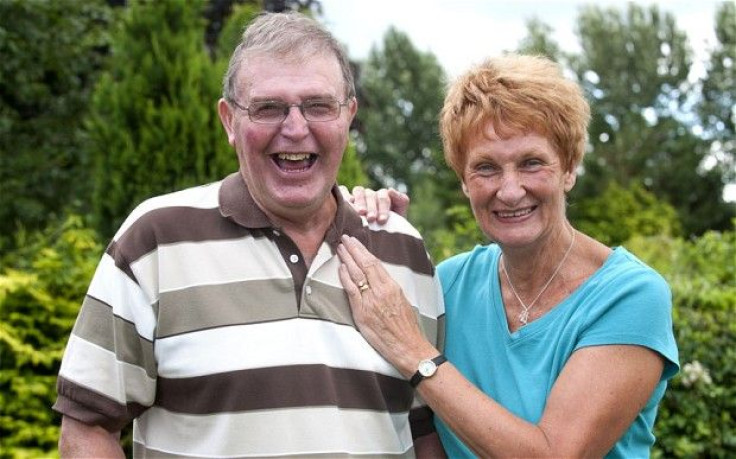Unable To Feel Sad, Stroke Victim Malcolm Myatt Is Now A Permanent Smiley Face

Malcolm Myatt, 68, a retired truck driver who lives in Staffordshire, England, thought of himself as generally fit and healthy; he played football until he was 52 and also acted as a referee for games beyond that age, he told the Daily Mail. But around the time he turned 62, he suffered a stroke. After warning his wife that he might not make it through the night, the doctors explained that the stroke had damaged his frontal lobe. After a 19-week stay in the hospital, Myatt left with little feeling in his left side — he has no function in his left arm and must walk with a stick — and damage to his short-term memory. He also suffered another significant after-effect from the stroke, though ‘suffer’ may not be the right word to use.
Myatt no longer feels sadness.
The frontal lobes, which stretch across both the right and left hemispheres of the brain, are the parts of our minds that participate in motor function, critical thinking, language, problem solving, memory, impulse control, and socialization, including sexual behavior. Because they provide the foundation of emotion and judgment, they are frequently seen as the seat of personality. Specifically, the right frontal lobe negotiates the non-verbal aspects of communication and negative emotions, while the left frontal lobe deals with logic, language abilities, and positive emotions.
The right lobe is also perceived as the seat of empathy as it is the part of ourselves that can detect when someone is angry, sad, or scared by the tone of his or her voice or facial expression. Both lobes are also generally thought to play a role in our spatial orientation and how we pick up clues from our environment. In cases of mild to moderate traumatic brain injury, magnetic resonance imaging reviews show that the frontal area is the most common region of injury, according to the Journal of Neurosurgery. Many people who suffer brain injury, then, may have difficulty with reasoning and emotion.
The part of Myatt’s brain that was damaged by the stroke was the right frontal lobe. Although frontal lobe damage is often permanent, rehabilitation often helps people regain some amount of functioning. Unfortunately, in many cases of frontal lobe damage, sufferers have problems with controlling their emotion, but it is rare for someone to entirely lose one emotion. Yet, by all accounts, that is certainly Myatt’s experience.
“I am never depressed. Being sad wouldn't help anything anyway. It's an advantage really,” this grandfather of two, who now has a permanent smile on his face, told the Daily Mail.
His wife, Kath, puts it another way. “When he starts laughing everyone in the room does. He’s infectious,” she told the Telegraph.
Source: Levin HS, Amparo E, Eisenberg HM, et al. Magnetic resonance imaging and computerized tomography in relation to the neurobehavioral sequelae of mild and moderate head injuries. Journal of Neurosurgery. 1987.



























